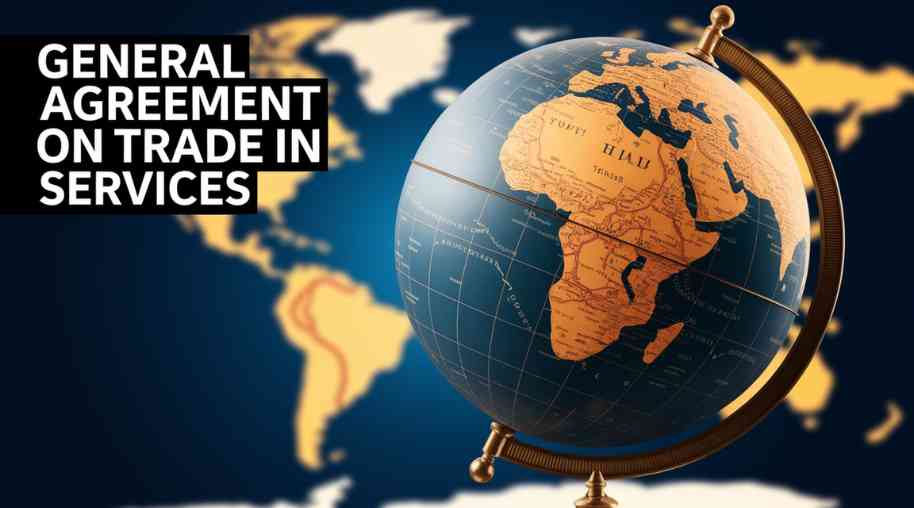GATS Full Form-General Agreement on Trade in Services
by Shashi Gaherwar
0 2186
Introduction
The General Agreement on Trade in Services (GATS), a multilateral trade agreement under the World Trade Organization (WTO), governs the international trade of services. Established in 1995 during the Uruguay Round, GATS promotes trade liberalization in the service sector while ensuring fair competition. Covering industries like banking, telecommunications, healthcare, education, and tourism, it facilitates economic growth and cross-border investments through transparent trade rules.

Objectives of GATS
- Liberalizing the global services market while maintaining fair trade practices.
- Encouraging foreign direct investment (FDI) with a stable trade environment.
- Enhancing economic development by expanding service industries across borders.
- Promoting transparency and regulatory consistency in service trade policies.
Structure and Key Provisions of GATS
GATS operates on three fundamental pillars:
- General Obligations and Disciplines: Applicable to all WTO members, including:
- Most-Favored-Nation (MFN) Treatment: Equal treatment for all WTO members without discrimination.
- Transparency: Disclosure of regulations affecting service trade for fair practices.
- Specific Commitments: Countries commit to opening specific service sectors, recorded in individual schedules of commitments.
- Progressive Liberalization: Encourages gradual expansion of market access through negotiations.
Modes of Supply under GATS
- Cross-Border Trade (Mode 1): Services provided from one country to another (e.g., online consultancy, financial transactions).
- Consumption Abroad (Mode 2): Consumers travel to another country for services (e.g., tourism, medical treatment).
- Commercial Presence (Mode 3): Foreign service providers establish a presence in another country (e.g., foreign banks).
- Presence of Natural Persons (Mode 4): Individuals travel abroad to provide services (e.g., IT professionals, consultants).
Benefits of GATS
- Market Expansion: Encourages international competition, improving service quality and efficiency.
- Foreign Investment Growth: Provides a stable environment, attracting global investors.
- Consumer Benefits: Increases competition, leading to better services and lower costs.
- Job Creation: Expands employment opportunities through cross-border service trade.
Challenges and Criticisms of GATS
- Regulatory Barriers: Complex regulations may restrict market access.
- Concerns over Public Services: Critics fear privatization of essential services like healthcare and education.
- Unequal Market Access: Developing nations struggle to compete with advanced economies.
- Lack of Compliance Enforcement: WTO faces challenges ensuring adherence to commitments.
Future of GATS
- Digital Service Trade: Strengthening regulations for the growing e-commerce sector.
- Support for Developing Countries: Providing technical assistance and flexible commitments.
- Enhanced Dispute Resolution: Improving mechanisms to ensure trade agreement compliance.
The General Agreement on Trade in Services (GATS) is vital for facilitating international service trade, promoting investment, and fostering economic growth. Despite challenges, GATS continues to evolve, shaping global trade policies and encouraging cooperation among nations.
Further Learning Resources
If you’re passionate about building a successful blogging website, check out this helpful guide at Coding Tag – How to Start a Successful Blog. It offers practical steps and expert tips to kickstart your blogging journey!
For dedicated UPSC exam preparation, we highly recommend visiting www.iasmania.com. It offers well-structured resources, current affairs, and subject-wise notes tailored specifically for aspirants. Start your journey today!

Share:









Comments
Waiting for your comments